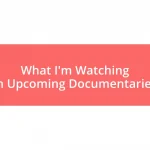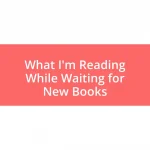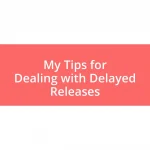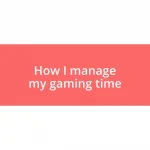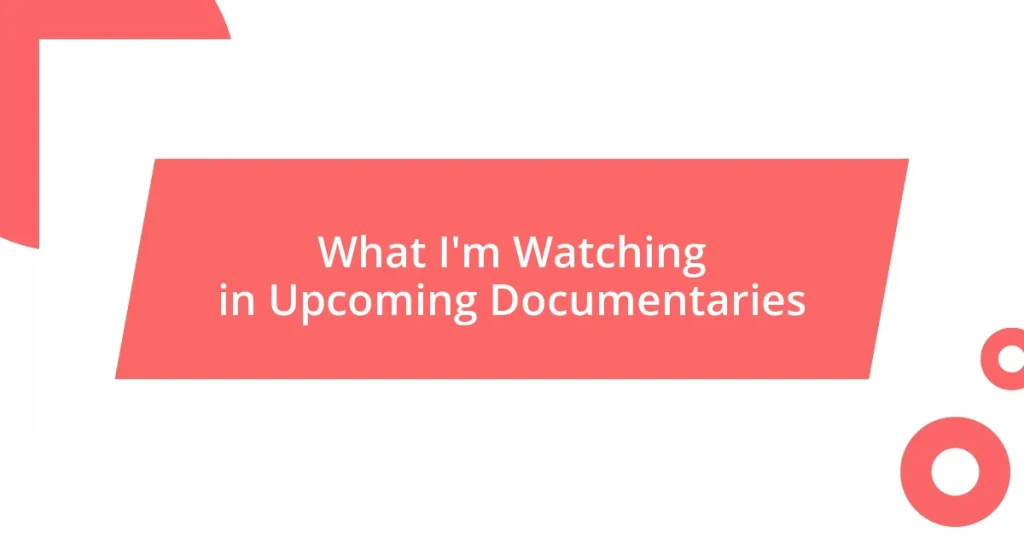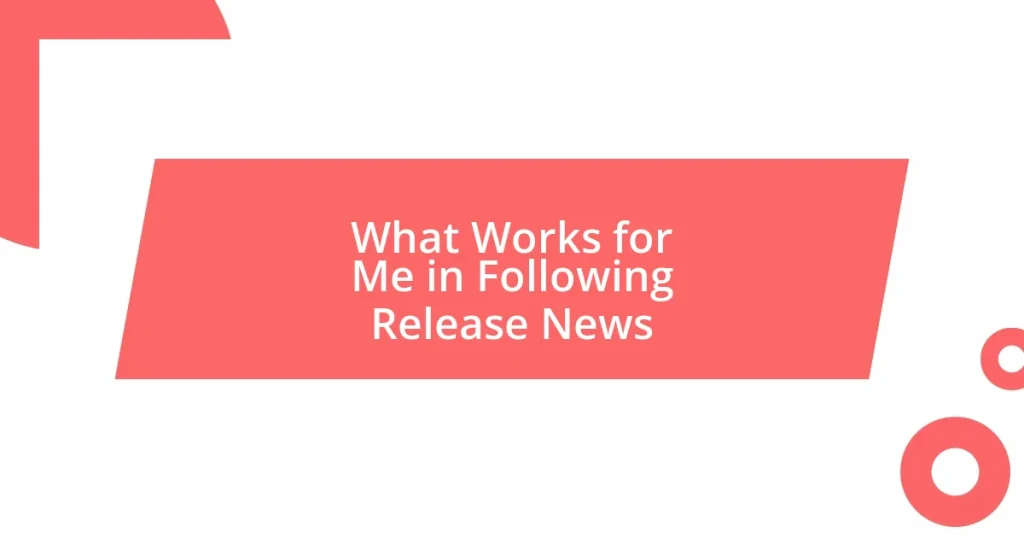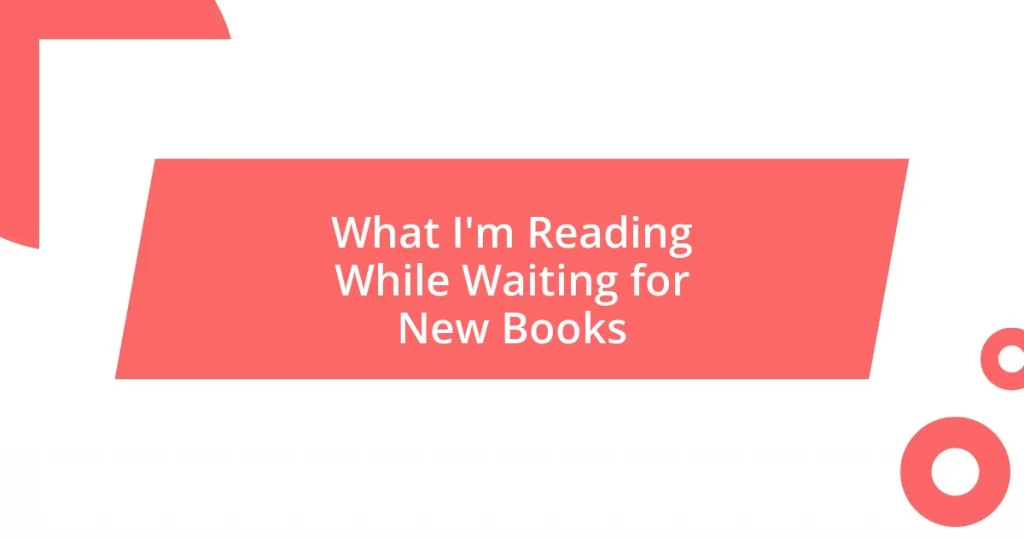Key takeaways:
- Indie game communities offer a supportive environment that fosters creativity, innovation, and a sense of belonging through constructive feedback and collaboration.
- Engaging authentically and sharing personal journeys in game development can deepen connections with community members, creating a strong network of support and motivation.
- Embracing community feedback transforms game development, enhancing both the game’s quality and relationships between developers and players, fostering a collaborative creative process.
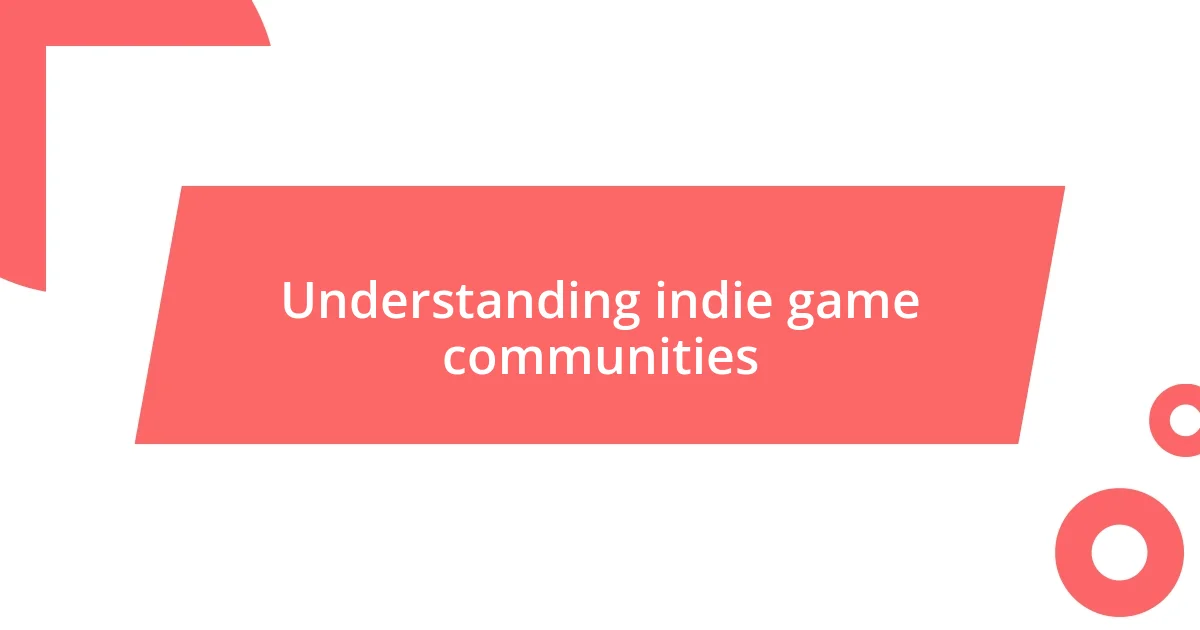
Understanding indie game communities
Indie game communities are truly fascinating spaces filled with creativity and collaboration. I remember when I first joined a Discord server dedicated to indie developers; the excitement was palpable. It felt like stepping into a vibrant cafe where everyone shared their dreams and aspirations, all fueled by a love for gaming. Isn’t it amazing how a simple game can bring such diverse individuals together?
What struck me the most was the level of support these communities offer. I once shared a prototype of my game, and instead of harsh criticism, I received constructive feedback and encouragement. This kind of environment fosters growth and innovation, which is often lacking in more traditional gaming circles. Have you ever experienced that sense of belonging where you feel safe to fail and learn?
Beyond just game development, there’s an undeniable sense of passion that permeates indie communities. I’ve witnessed countless discussions around storytelling and art that extend far beyond just the mechanics of games. Isn’t it inspiring when people come together to not just play, but to create and share their unique visions? It makes me appreciate the indie scene even more, knowing that each game carries the heart and soul of its creator.
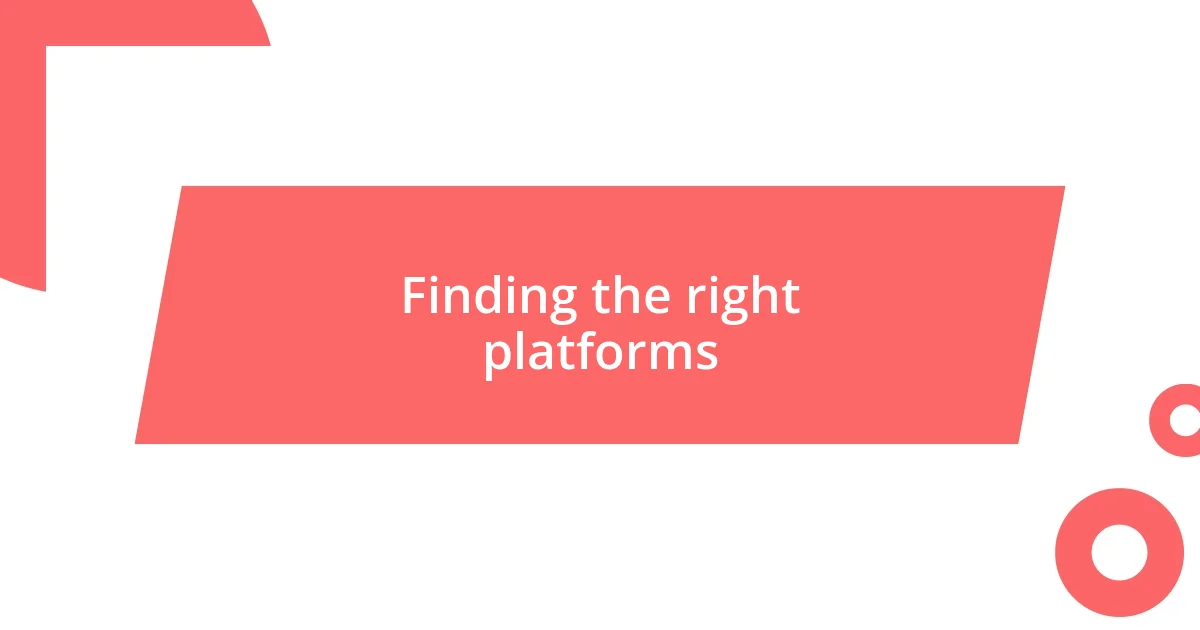
Finding the right platforms
Finding the right platforms to connect with indie game communities is essential for fostering relationships and gathering feedback. I remember when I meticulously sifted through various forums, social media groups, and gaming platforms to find where my voice would resonate best. It wasn’t an easy task—each platform has its own unique vibe, and I had to engage with each one before I found my fit.
After trying out several options, I discovered that certain platforms offered a more welcoming atmosphere for newcomers like myself. For instance, I found that Reddit had threads filled with passionate individuals eager to share knowledge, while Discord servers provided real-time conversations where I could ask questions and interact. The key is to identify where your interests align with the community’s focus, as this will enhance the quality of connections you make.
Ultimately, it’s about discovering a space that feels right for you. Each platform can transform your indie game journey in different ways, so don’t hesitate to experiment. I vividly recall how joining a dedicated game jam community on a specific platform not only honed my skills but also brought lasting friendships that motivated me during challenging development phases.
| Platform | Community Vibe |
|---|---|
| Informative and helpful, good for learning | |
| Discord | Interactive and immediate, great for real-time feedback |
| Fast-paced and networking-focused, perfect for visibility | |
| IndieDB | Dedicated to indie games, supportive and collaborative |
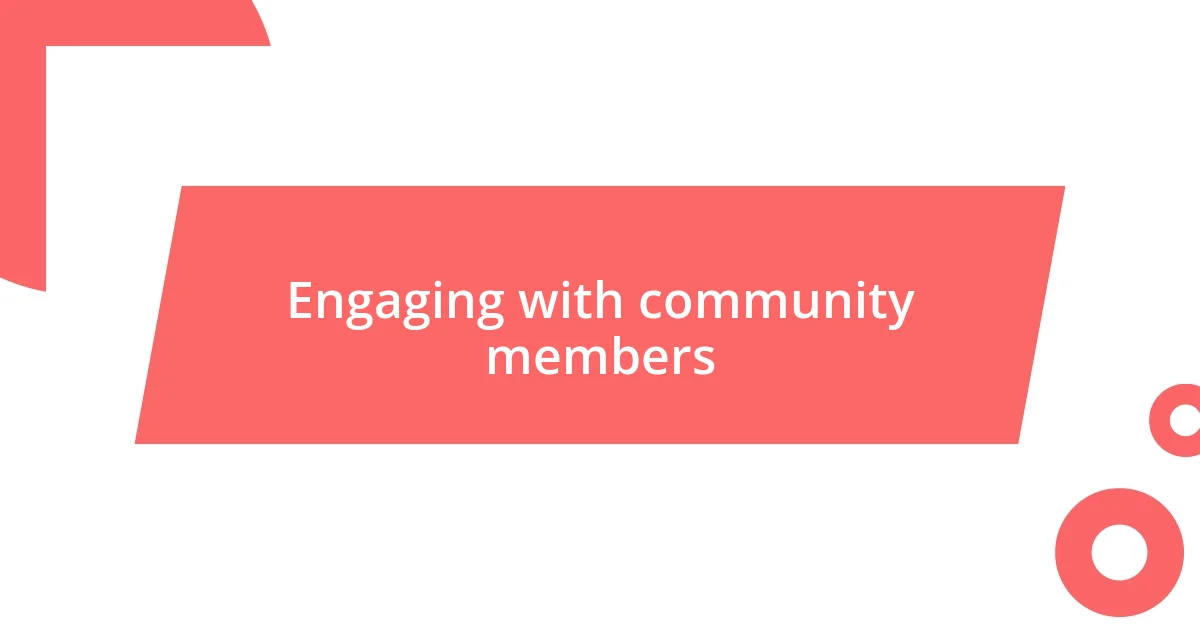
Engaging with community members
Engaging with community members can often feel like a dance, one that requires care and attention. I remember attending a virtual indie game meetup where I first encountered the importance of active participation. It wasn’t just about being a silent observer; stepping up to share ideas and discuss gameplay mechanics opened up a floodgate of connections. The warmth and enthusiasm from other developers created a sense of camaraderie that was genuinely uplifting.
- Be Authentic: Share your true self and experiences. The community values sincerity.
- Ask Questions: Show genuine curiosity about others’ projects. It invites dialogue and fosters relationships.
- Offer Help: Supporting other developers with feedback or resources can create lasting bonds.
- Share Your Journey: Updates on your game development can lead to meaningful interactions and insights.
- Participate in Events: Competing in game jams or community challenges brings members together and showcases your skills.
Through these interactions, I found that engaging with others not only enriched my understanding of game design but also nurtured friendships that kept me motivated during tougher times. Each conversation was a stepping stone toward becoming a more integrated part of the community, and I cherished the connections I made along the way.
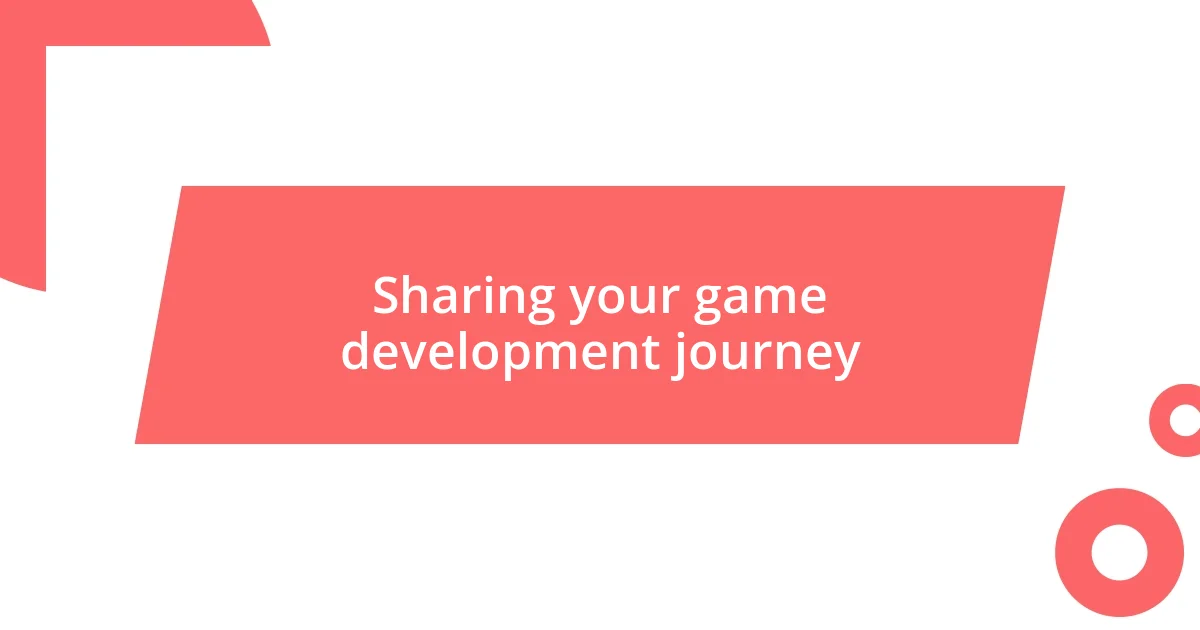
Sharing your game development journey
Sharing your development journey is both a personal and communal act. When I first started sharing updates about my game on various social media platforms, it felt vulnerable. I wasn’t just showcasing my progress; I was inviting critique and opinions from fellow developers who might have vastly different experiences. I vividly remember posting my first gameplay video and panicking as I hit “publish”—the support and constructive feedback I received afterward eased those nerves and sparked a renewed sense of motivation.
As I continued to document my process, I learned that storytelling plays a vital role in engagement. I found that sharing not just successes, but also setbacks resonated deeply with my audience. There was a moment when I shared a frustrating bug I couldn’t fix for days. The response was overwhelming—other developers offered their insights, and a few even sent me private messages with similar experiences. This created a safe space where we could all learn from each other’s challenges. How often do we get to bond over our failures as much as our victories? It’s genuinely rewarding!
Moreover, I realized that the act of sharing my journey transformed my development process. Each time I posted an update, I felt accountable not just to myself but to those following my progress. They were cheering me on, and that encouragement fueled my creativity. I often ask myself, “What can my followers take away from this moment?” It’s that thought that pushes me to be more transparent and authentic, engaging my community in a way that feels rewarding for us all.
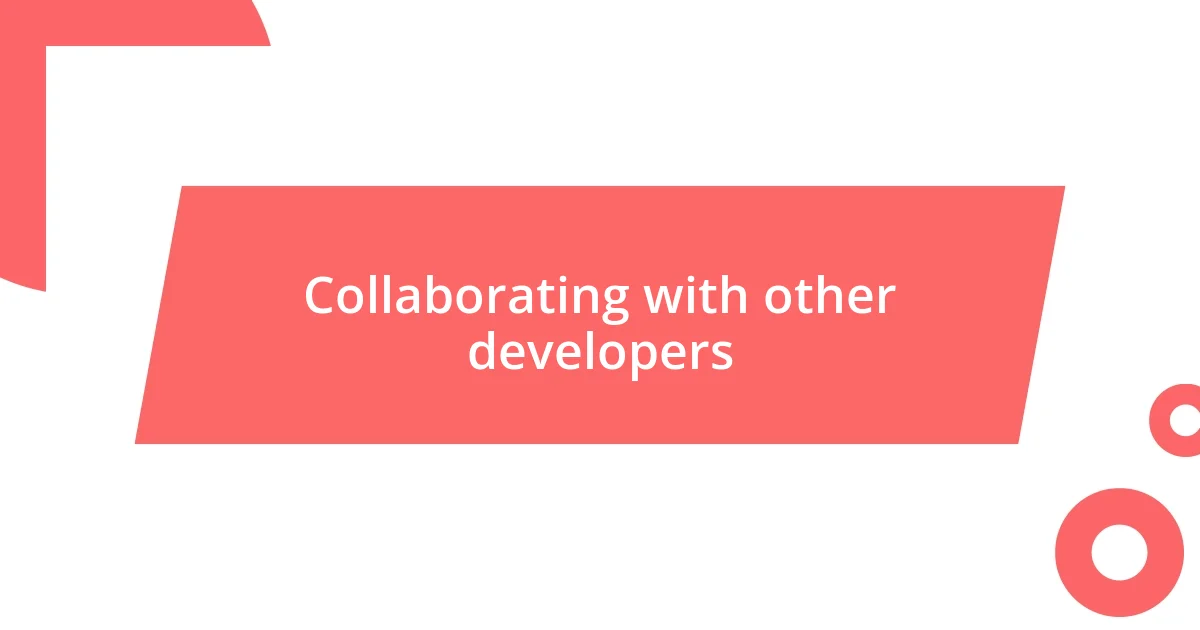
Collaborating with other developers
Collaborating with other developers can be a game-changer, both creatively and emotionally. I recall a late-night brainstorming session with a fellow indie developer over Zoom. We were bouncing ideas off each other when suddenly, a simple comment about a mechanic in my game led to a whole new feature I never would have considered. It felt exhilarating to have that kind of back-and-forth; collaboration just fuels innovation!
I’ve also discovered that partnerships often extend beyond just sharing ideas. Once, I partnered with a developer to co-host a workshop on level design. Not only did it allow us to combine our expertise, but it also brought our communities together. Seeing our audience engage and ask questions reminded me of how much we can amplify our impact when we work alongside others. Have you ever experienced that spark when mutual goals align? It’s electric!
In my journey, I’ve learned that collaboration requires open-mindedness and a willingness to compromise. There was a time when I was adamant about a design choice in my game, but after discussing it with a teammate, I realized it wasn’t serving the larger vision. Letting go of my initial attachment opened up an avenue for creativity I hadn’t anticipated. Isn’t it fascinating how stepping back can often propel you forward?
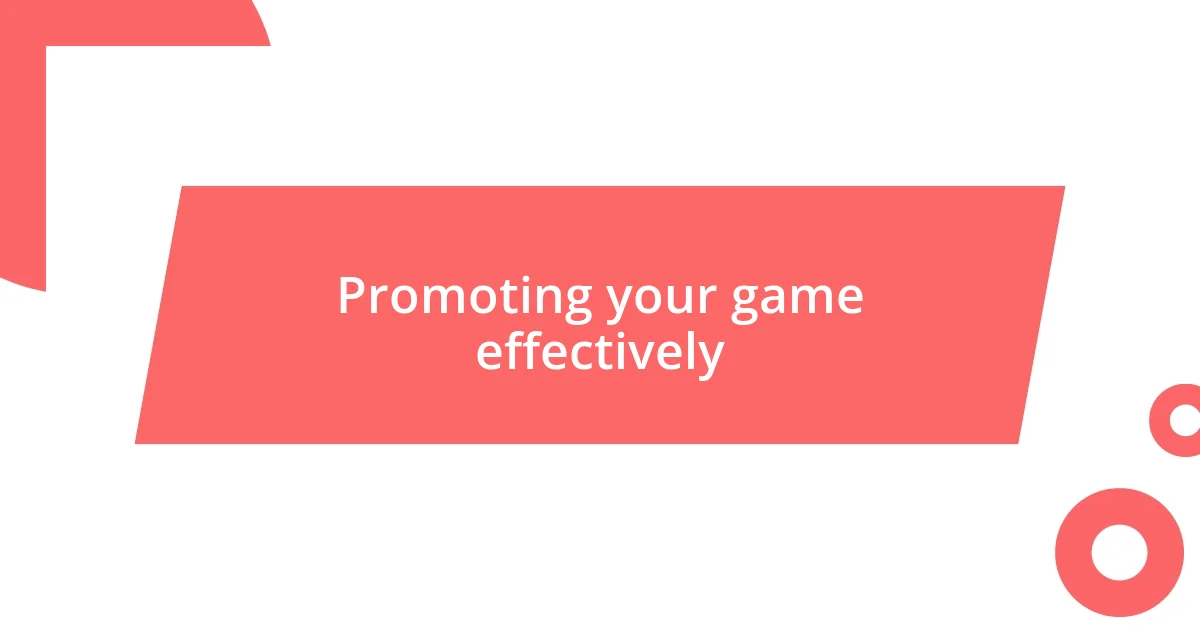
Promoting your game effectively
Promoting your game effectively hinges on consistency and authenticity. I vividly remember setting aside a little time each week to create content that felt genuine. Whether it was a blog post or a short video update, those regular touchpoints not only kept my audience engaged but also helped build a community of dedicated supporters. I often ponder, “How can I make each interaction meaningful?” This mindset shifted my focus from mere promotion to fostering connections.
Social media platforms played a pivotal role in my promotional strategy. At first, I was uncertain about which channels to choose, but I found that focusing on just a few allowed me to build a deeper relationship with my audience. A memorable moment was when I participated in a Twitter chat with fellow indie developers—a casual dialogue that resulted in a surge of followers and interest in my game. I realized that sometimes, the most effective promotion stems from organic conversations rather than traditional marketing tactics. Have you ever noticed how genuine interactions can spark a buzz far beyond your expectations?
Another effective promotional tactic was engaging directly with my audience through live streams and Q&A sessions. I remember the thrill of showcasing gameplay live for the first time; it felt like sharing a piece of my heart. Viewers not only saw my game in action but also got to ask questions, express their excitement, and provide instant feedback. That real-time interaction creates a sense of inclusion and belonging. It begs the question: How often do we get to have such intimate exchanges with our fans? Those moments became my favorite—transforming followers into a community that truly cared about the journey.
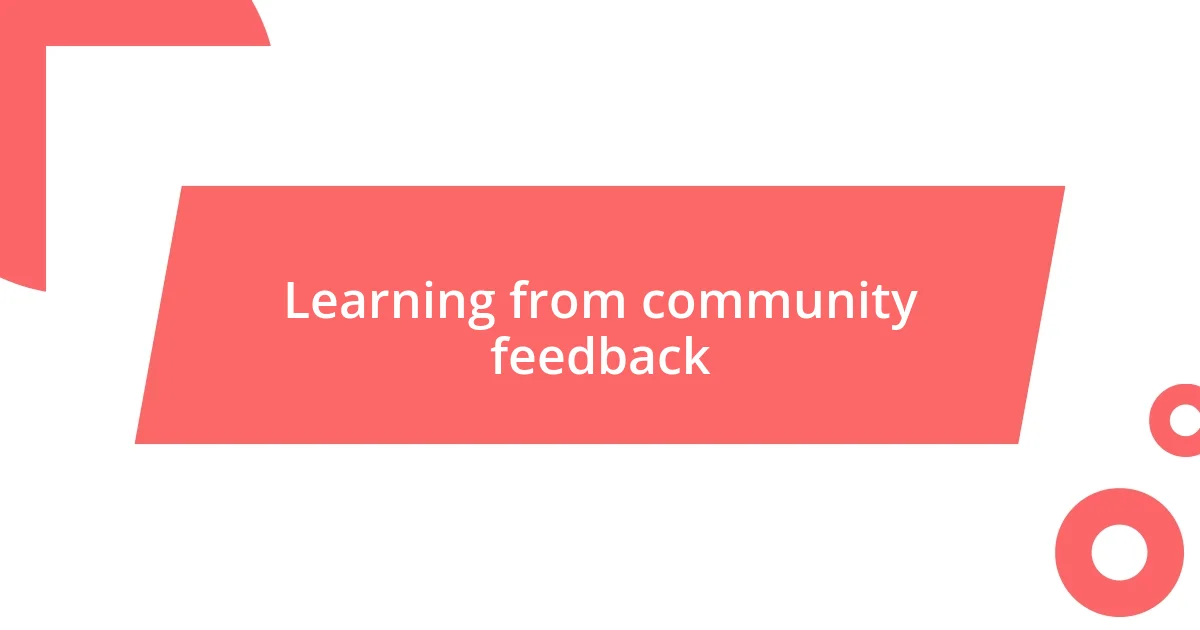
Learning from community feedback
Learning to embrace community feedback transformed my approach to game development. Early on, I was hesitant to share my work, worried about criticism. However, once I started inviting opinions, it felt like unlocking a treasure chest of insights! I remember when players pointed out a pacing issue in my demo. Initially, it stung a bit, but upon reflecting, I realized they were right. Their feedback led to a more thrilling game experience, and that was worth more than my pride. Does that happen to you too? Finding gems in what feels like harsh criticism?
One standout moment for me was during a community playtest. Players expressed a mix of excitement and confusion about a key mechanic. Rather than brushing their comments aside, I engaged them in a discussion. I was blown away by their passion and perspective! That session helped me refine the mechanic so it felt intuitive while still innovative. Connecting with the community reminded me that they aren’t just critics—they’re collaborators on this creative journey. It raises an interesting question: how often do we genuinely listen to our players?
Another unexpected joy of community feedback is the relationships it nurtures. I remember receiving an email from a fan who spent hours playing my beta version and then detailed their experience. This kind of engagement created a sense of loyalty and investment. It made me feel seen, beyond just a game developer—I became part of their narrative too! When we make space for community voices, we invite shared stories that deepen the connection between players and creators. Isn’t that what gaming is all about?
